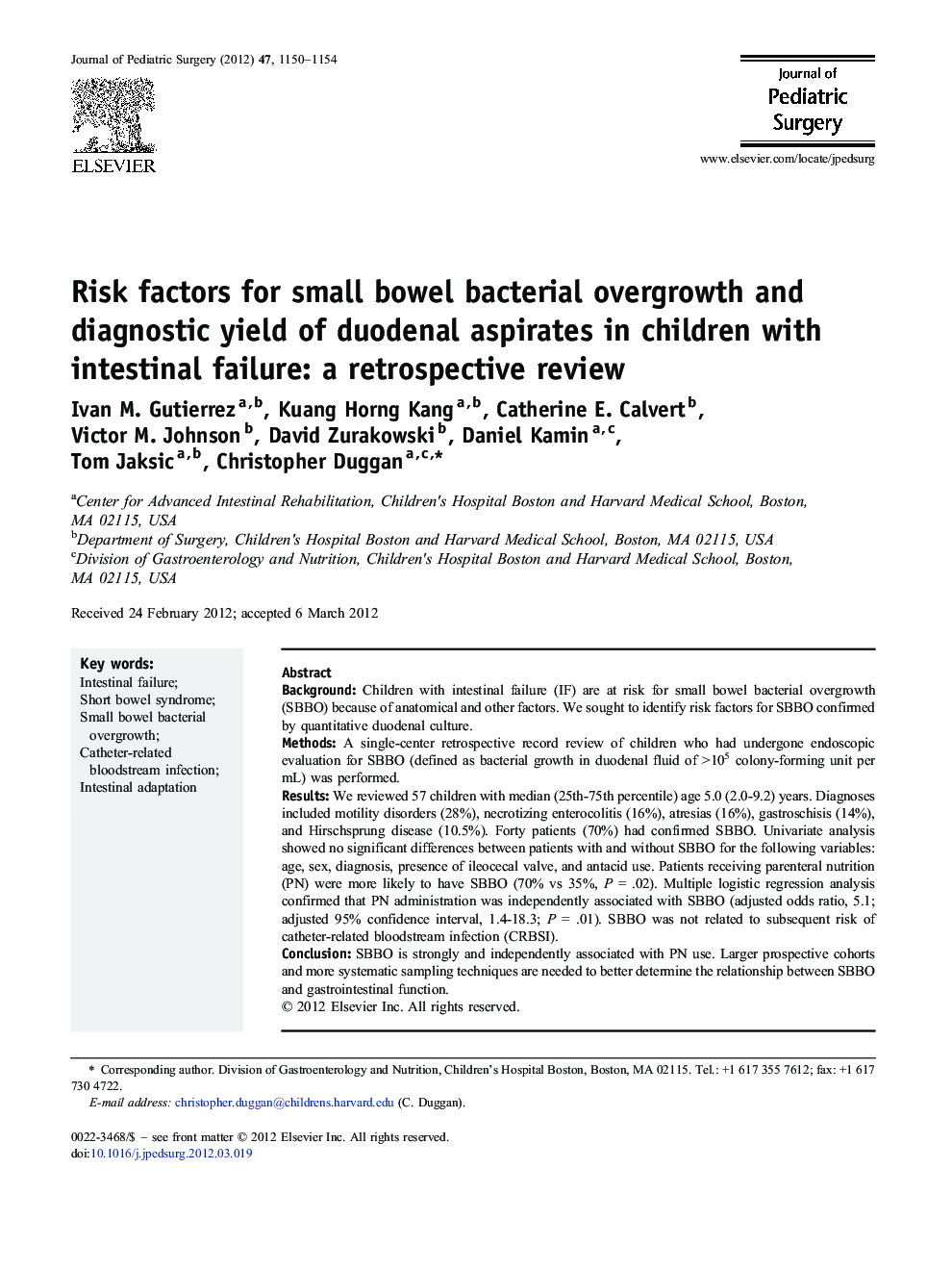| Article ID | Journal | Published Year | Pages | File Type |
|---|---|---|---|---|
| 4157201 | Journal of Pediatric Surgery | 2012 | 5 Pages |
BackgroundChildren with intestinal failure (IF) are at risk for small bowel bacterial overgrowth (SBBO) because of anatomical and other factors. We sought to identify risk factors for SBBO confirmed by quantitative duodenal culture.MethodsA single-center retrospective record review of children who had undergone endoscopic evaluation for SBBO (defined as bacterial growth in duodenal fluid of >105 colony-forming unit per mL) was performed.ResultsWe reviewed 57 children with median (25th-75th percentile) age 5.0 (2.0-9.2) years. Diagnoses included motility disorders (28%), necrotizing enterocolitis (16%), atresias (16%), gastroschisis (14%), and Hirschsprung disease (10.5%). Forty patients (70%) had confirmed SBBO. Univariate analysis showed no significant differences between patients with and without SBBO for the following variables: age, sex, diagnosis, presence of ileocecal valve, and antacid use. Patients receiving parenteral nutrition (PN) were more likely to have SBBO (70% vs 35%, P = .02). Multiple logistic regression analysis confirmed that PN administration was independently associated with SBBO (adjusted odds ratio, 5.1; adjusted 95% confidence interval, 1.4-18.3; P = .01). SBBO was not related to subsequent risk of catheter-related bloodstream infection (CRBSI).ConclusionSBBO is strongly and independently associated with PN use. Larger prospective cohorts and more systematic sampling techniques are needed to better determine the relationship between SBBO and gastrointestinal function.
